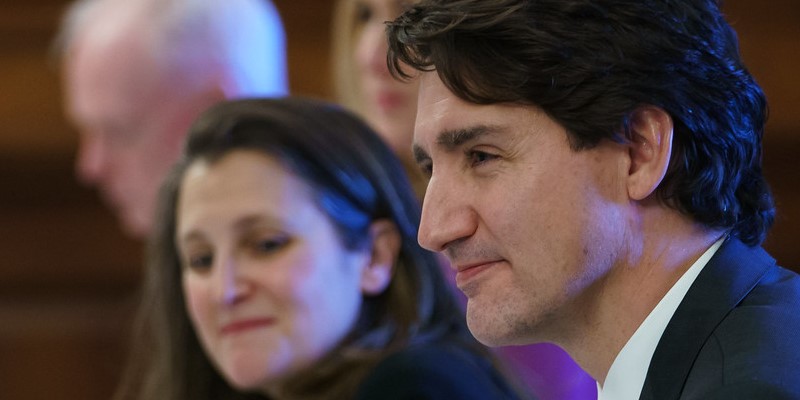Federal government poised to miss another self-imposed fiscal target

According to new projections from the Parliamentary Budget Officer (PBO), the Trudeau government, which will table its next budget on April 16, may once again miss one of its own fiscal targets.
Specifically, in November’s fall economic statement the government committed to keep the 2023/24 deficit below $40.1 billion. But the PBO now projects the federal deficit will reach $46.8 billion in 2023/24. (Incidentally, Finance Minister Chrystia Freeland recently said “we laid out a clear set of fiscal guideposts in the fall economic statement and we will meet those guideposts.”)
The government also committed to lower the debt-to-GDP ratio in 2024/25 relative to November’s statement and keep it declining in coming years, while capping annual deficits at 1 per cent of GDP in 2026/27 and beyond.
It remains to be seen whether the Trudeau government’s upcoming budget will confirm the PBO’s projections. But notably, the PBO report did not include expected spending on the recently announced national pharmacare program, nor any additional defence spending—both of which could add billions to the deficit.
Of course, the Trudeau government has a history of breaking its own fiscal rules, so it would come as no surprise if the upcoming budget reveals a 2023/24 deficit larger than $40.1 billion. But even if the government defies PBO projections and achieves its deficit target, this would not be a cause for celebration. Instead, the government should chart a path of rapid deficit reduction to achieve budget balance within the next two years by slowing the growth in spending.
Since first elected, the Trudeau government has increased spending significantly on new or expanded programs and services, and financed this spending through government debt. From 2014/15 to 2022/23, the government increased annual program spending (total spending minus debt interest) by approximately 75 per cent. If we adjust for population growth and inflation, the Trudeau government has recorded the five-highest years of per-person spending in Canadian history.
All of this new spending has resulted in eight consecutive budget deficits under Prime Minister Trudeau, with six more projected until 2028/29. These deficits have contributed to an $867.2 billion increase in gross federal debt from 2014/15 to 2022/23.
But what have Canadians gotten in return?
The federal government plans to spend more taxpayer dollars on debt interest ($46.5 billion) in 2023/24 than on child-care benefits ($31.2 billion). Future generations will have to pay off a debt burden that’s nearly double what it was when Prime Minister Trudeau was elected in 2015. And Canadians are currently suffering an economic growth crisis that has left living standards worse in the fourth quarter of 2023 than they were at the end of 2014.
Even if the PBO projections don’t come to fruition and the federal government achieves its fiscal targets, this will simply mean a continuation of the same underlying approach to government finances that has substantially increased spending over the last 10 years. Nothing short of a complete reversal in federal fiscal policy is acceptable in the upcoming budget.
Authors:
Subscribe to the Fraser Institute
Get the latest news from the Fraser Institute on the latest research studies, news and events.


